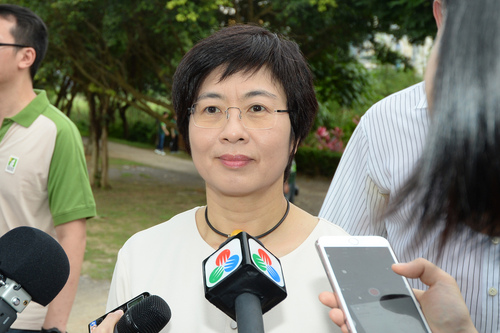 The Secretary for Administration and Justice, Ms Chan Hoi Fan, speaks to reporters.
The Secretary for Administration and Justice, Ms Chan Hoi Fan, speaks to reporters.
The Government’s decision to withdraw from the Legislative Assembly a bill – on regional cooperation with the mainland and Hong Kong regarding legal matters – was a strategic one taken for internal administrative reasons relating to the legislative process. The Secretary for Administration and Justice, Ms Chan Hoi Fan, on Saturday (18 June) said the Government would need more time than had been anticipated, in order to address the question of the significant differences between the legal systems of the three jurisdictions. The Government needed to study carefully those differences; in particular regarding issues relating to maintaining the coherence of Macao’s own legal system. The discussion on regional legal cooperation was not yet at a final stage, she said. The Government would continue working closely with authorities from the mainland and from Hong Kong. This was in order to address the differences between the three jurisdictions; while at the same time adhering to the principle aims of the proposed legal cooperation, and thus improve the effectiveness of this specific law. In addition, Ms Chan commented on the relocation of the First Public Notary Office from the Holy House of Mercy at Senado Square, to the Northern District Public Services Centre at Areia Preta. She said that following the relocation, the city’s three offices of the Public Notary would maintain the same services as previously. She added that members of the public would continue to have available the services of the Second Public Notary Office, located at the Public Administration Building in Rua do Campo; and the Islands’ Office of the Public Notary, in Rua da Bragança, Taipa.


